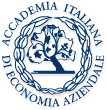Distributed sensemaking and organizing in Crowdsourcing: a case study
Crowdsourcing has been used by an increasing number of organizations for searching for innovative ideas, especially in the form of contests. The success of a contest depends on several factors, such as the number of participants, their level of engagement (which is strictly related to the meaning attributed, and participants' intrinsic motivation and sense of purpose) as well as the quality of their contributions. Notwithstanding the diffusion of crowdsourcing, particularly as ideas challenges or innovation contest, and the vast literature studying those phenomena in management and organization science, little attention has still been paid to their organizing model and distributed sensemaking. The paper wants to investigate the issues related to the interventions for increasing the positive performance of crowdsourcing initiatives. This is accomplished seeking for a complementary understanding of the meaning, correlated to the complex intertwining of social interactions and influence as actions enacting organizing and distributed sensemaking outside a formal organization, where a network - in order to accomplish anything - has to be coordinated, connected, and temporarily stabilized.




